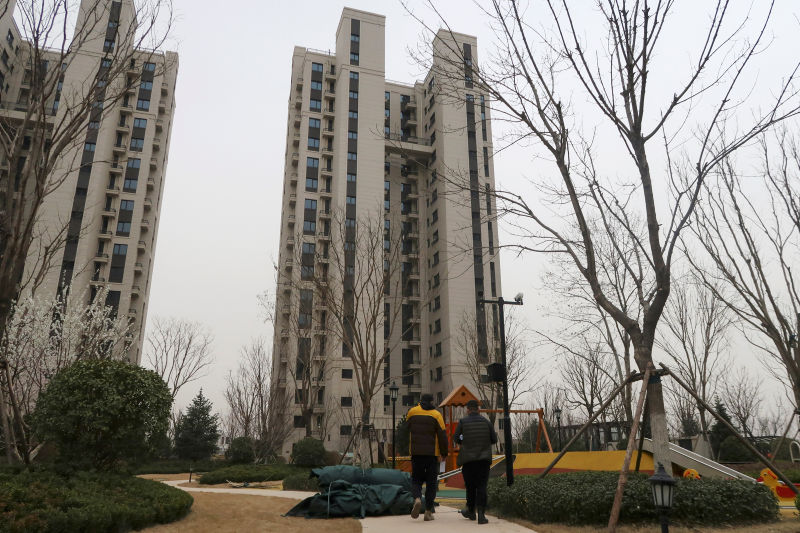China could nationalise its massively indebted property companies to save the country’s real estate sector, according to a report by a leading short seller, using legislation that could ban land sales to private developers.
The country’s developers are struggling, with Evergrande, once China’s largest, buried in more than $300 billion in liabilities. The cash-strapped company’s troubles and contagion worries have sent shockwaves across global markets.
The issue worsened this week as Yango Group offered a distressed debt exchange on some US dollar bonds for new notes personally guaranteed by its chairman to avoid defaulting on upcoming debt payments.
“We expect China’s publicly listed property developers to be carved up and sacrificed on the altar of saving the property economy,” Anne Stevenson-Yang of J Capital Research wrote in a report.
“Ultimately, we think China will likely nationalise the sector as it has energy, perhaps moving to outlaw the sale of land to private developers,” she added.
The nationalisation, which Stevenson-Yang expects to “take several years”, would use the experience of the coal sector in 2007-2012 as a model for what could happen to property.
The report notes that significant consolidation occurred in 2015-16. “They have the stick of foreclosure, should smaller developers resist,” Stevenson-Yang said.
“Developers typically collateralise a number of units in their new buildings in return for working capital loans, and, as sales slow down, those loans will go unpaid. Pressure from the banks is a common tactic in expropriation strategies in China,” she added.
‘Hiring Actors’
Stevenson-Yang dismissed suggestions that Evergrande would stage a comeback. “We suspect positive news about Evergrande is optical,” she said.
Noting that Evergrande had announced work had restarted at several developments in Shenzhen, Stevenson-Yang said one Chinese developer, Tahoe Group, was “reported to have faked a restart in construction by hiring actors to pretend they were working”.
The property downturn has hit local governments, which depend on land sales for revenue. Sales declined 17.5% in August and again 11.1% in September, according to the National Bureau of Statistics. But sales of residential land have plummeted far faster, declining 59% year-on-year in 351 tracked cities in August and 37% in the third quarter.
The downward trend in property sales has pulled down construction activity and, in turn, commodities, with cement, glass and aluminium in freefall.
Stevenson-Yang doubted that a widely disliked property tax backed by Xi Jinping, China’s president, would save the sector.
“Despite recent hype as [Xi’s] solution to the Evergrande problem, property taxes have been around in China as long as has the private real estate market but have made little or no difference,” she wrote.
“One difficulty localities face is the fact that governments want to tax investment properties rather than primary dwellings. But China has no cross-city or -provincial records to indicate whether an owner has property in another city.”
• By George Russell
READ MORE:
China Property Chiefs to Discuss Ways to Help Developers
No Firm ‘Too Big To Fail’ As China Tackles Debt Mountain: S&P
























